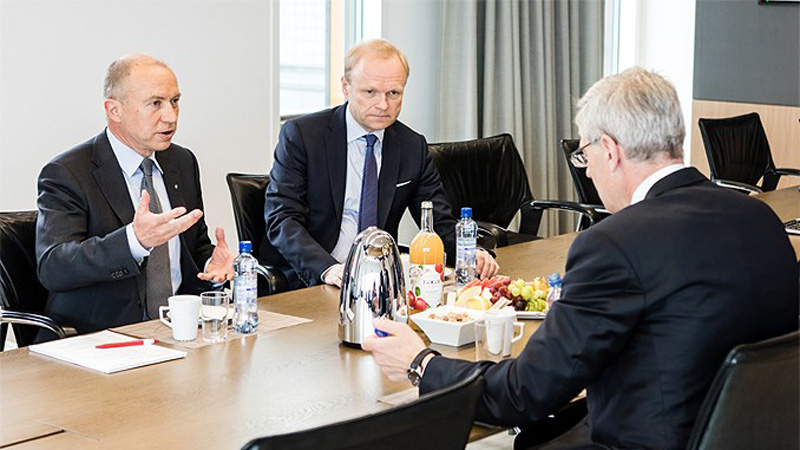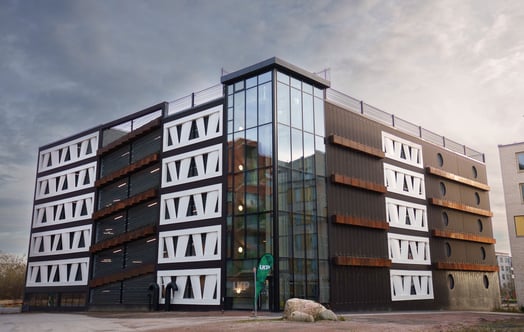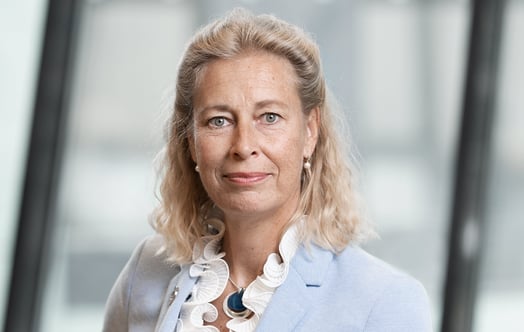Nordic energy CEOs call for an ambitious European Green Deal
In a joint declaration, the CEOs of Fortum, Statkraft and Vattenfall encourage the EU to increase its climate ambition to match the Paris Agreement.

From left Statkraft's CEO Christian Rynning-Tønnesen, Fortum's CEO Pekka Lundmark and Vattenfall's CEO Magnus Hall. Photo Statkraft.
The CEO:s of the Nordic energy companies encourage the EU to increase its climate ambition to match the Paris Agreement and to enshrine the 2050 climate neutrality target in European Climate Law. Based on this, a cost-efficient emissions reduction pathway with coherent intermediary targets for 2030 and 2040 needs to be established.
On Thursday, 7 November, the CEO:s of the three energy companies appeared at a joint Nordic Coalition event in the European Parliament. Magnus Hall, Vattenfall President and CEO said:
“Vattenfall is committed to power fossil-free living within one generation. With the start of a new European political cycle, I believe Europe has an unique opportunity to take decisive political action towards becoming a climate-neutral economy by 2050, powered by clean electricity. We therefore strongly support the alignment of the EU’s 2030 and 2050 climate targets with the Paris Agreement in order to give a strong signal, encouraging the decarbonization of the EU economy”
Carbon pricing is key
The three Nordic utilities believe that carbon pricing is key for cost-efficient emissions abatement and climate financing. They recommend integrating the cost of CO2 emissions in the price of carbon-intensive products and activities wider in the economy. Extending the scope of the EU emissions trading system to sectors such as heating and cooling and transport needs to be further evaluated.
In addition to emissions reductions, carbon dioxide will need to be removed from the atmosphere in order to reach carbon neutrality. CO2 removal technologies should be duly recognised in the legislation and be supported to achieve market maturity.
Electrification most efficient
Fortum, Vattenfall and Statkraft see electrification as the most efficient, flexible and sustainable way to decarbonise the economy, in particular industry, transport, heating and cooling. This will be enabled through stronger interconnectors between regions, competitive low-carbon power supply and cross sectoral flexibility.
The Nordic utilities highlight that mastering the financial and social challenge of the energy transition is crucial for success. In order to succeed, costs and benefits have to be fairly distributed and no member state, consumer or citizen should be left behind.



